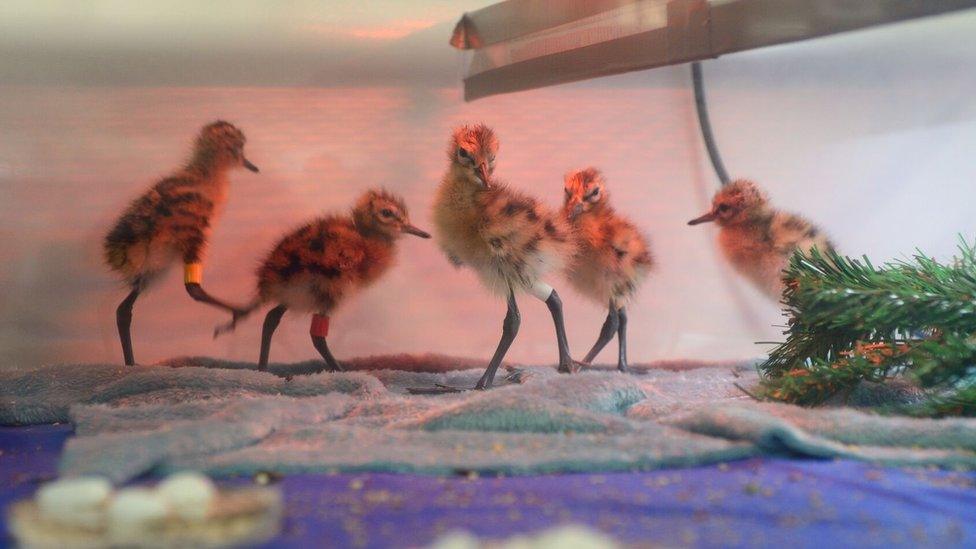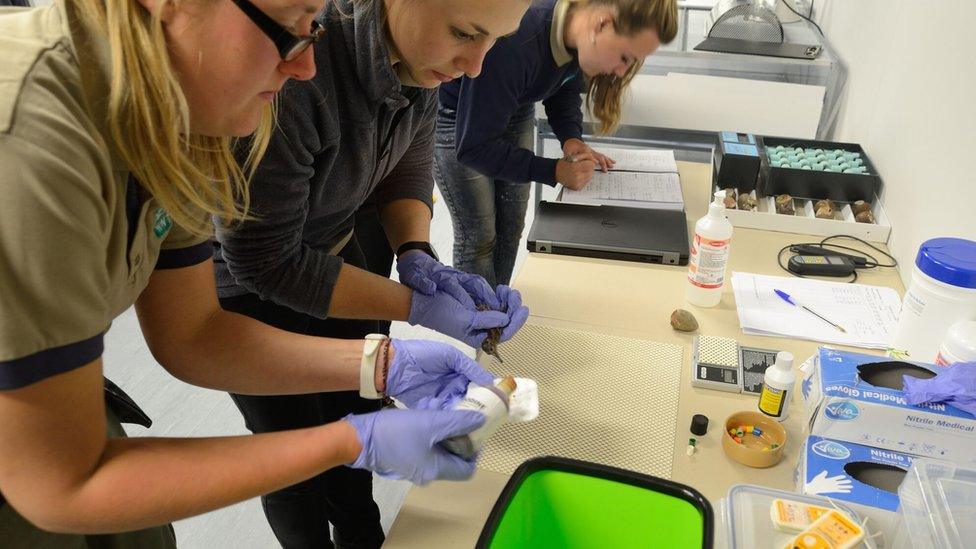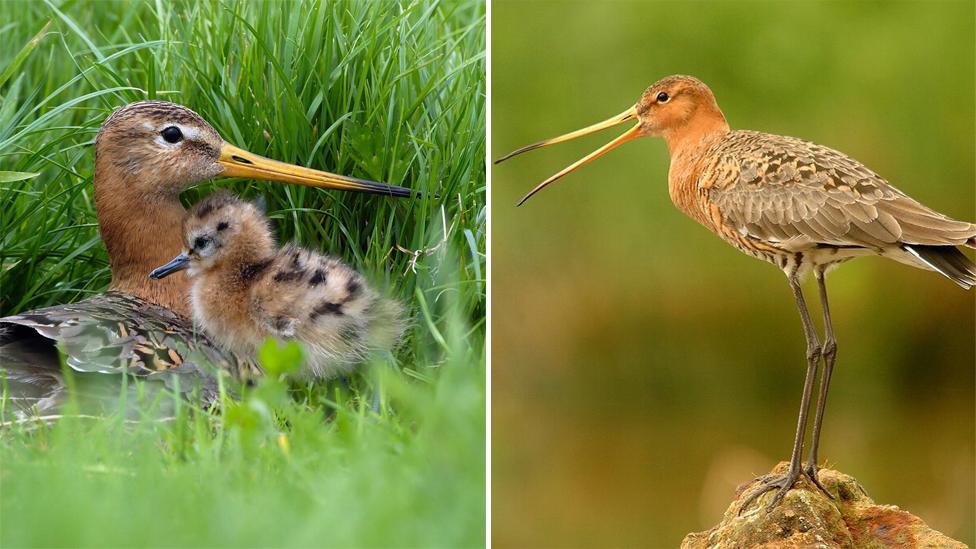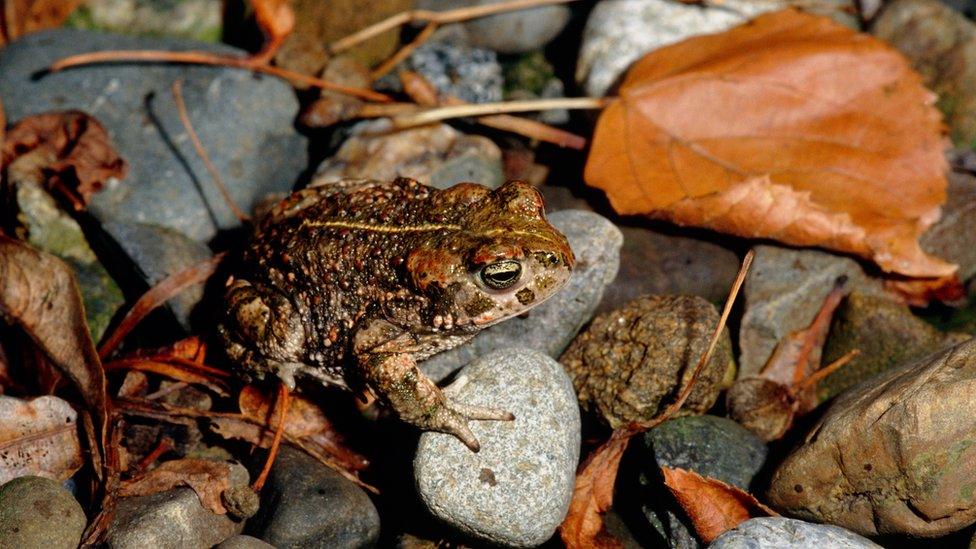Welney wildfowl centre hatches 26 'rare' godwit chicks
- Published

Conservationists hope the project will increase their knowledge of the species, as well as boost numbers
Conservationists bidding to save one of the UK's "red-listed" endangered bird species have hatched 26 chicks.
The black-tailed godwits - which have fewer than 60 UK nests - are being hand-reared, in the joint RSPB and Wildfowl & Wetlands Trust (WWT) scheme.
The majority of the birds are found in the Nene Washes in Cambridgeshire and the Ouse Washes on the Cambridgeshire and Norfolk border.
The ground-nesting birds are vulnerable to spring flooding and predators.
Staff from Project Godwit were granted a licence from Natural England to collect 32 eggs, which were incubated at WWT's Welney centre on the Ouse Washes in a method known as "headstarting".

Staff at the WWT Welney centre are hand-rearing the chicks until they are old enough to be homed outside
They believe it is the first time the method has been used to help a species in decline in the UK.
Rebecca Lee, WWT principal conservation breeding officer, said: "Headstarting young birds is a big intervention and it has already proved to be a huge help [in Russia] in a bid to save another species - the spoon-billed sandpiper - from extinction."
Hannah Ward, RSPB LIFE's recovery manager for the project, said the future of the species in the UK, and globally, was very uncertain.
Their numbers crashed to fewer than 30 pairs in the mid-1980s due to a series of spring floods and they are on the UK Birds of Conservation Concern red list for species at risk, external.
The hand-reared chicks will be moved into an enclosed aviary at about three weeks-old and when they are about five weeks-old, the gate will be opened to allow them to disperse into the wild.
The parent birds should then lay a second clutch and raise a brood themselves.

Black-tailed godwits

Most UK black-tailed godwits nest in the Fens making the area "vital to the quest to maintain and increase" numbers
Between 53 and 57 pairs breed in the UK every year
Most are found in the Nene and Ouse Washes, but fewer than 10 pairs breed in the north of Scotland and the Shetland Islands
They died out in the UK by the mid-19th Century due to habitat loss
The first breeding pair returned to the Ouse Washes in 1952
Source: RSPB

- Published14 September 2016
